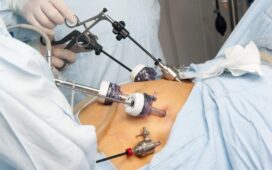If you’re a male, you’ve probably experienced a shaky erection in the bedroom. If you just experience impotence or erectile dysfunction on a rare occasion, this may not be a sign of impotence or erectile dysfunction. However, if you have erection issues often or any time you engage in sexual activity, you should seek medical advice.
Doctors usually diagnose the disorder through a physical examination or by simply asking patients about their medical history. However, your poor erection may be due to your medical condition if you have a serious illness. In such situations, your specialist can perform additional tests to determine the exact cause of your condition. As a result, he can recommend an erectile dysfunction treatment that is both appropriate and effective.
The following measures can be used to diagnose erection problems:
- Urine test
This examination, also known as urinalysis, looks at your urine to see whether you have diabetes or any other underlying health issues.
- Psychological evaluation
Your doctor can diagnose you with depression based on the results of this test. Your doctor can examine you to see if you have depression, which can be a cause of impotence.
- Physical examination
Your doctor may use this test to check for sensations in your penis, testicles, and nerves.
- Ultrasound imaging
Your doctor will use a wand-like device to position over the blood vessels leading to the penis during this examination. This creates a video clip that your doctor will use to check for blood flow problems.
Erectile dysfunction is commonly caused by problems with blood flow. As a result, before prescribing erectile dysfunction medication, your doctor might recommend an ultrasound.
- Routine blood checks
Your doctor might take a sample of your blood and send it to a laboratory to check for signs of diabetes, heart disease, low testosterone, and other health problems.
What are the most effective erectile dysfunction treatments?
Treatment options can be determined by the cause of the diagnosis. Physical conditions such as diabetes, hypertension, or heart disease; psychological issues such as shame, depression, or anxiety; low testosterone, excessive alcohol intake, and smoking are also possible causes of erectile dysfunction.
- ED medications
PDE-5 inhibitors are a form of medication that may help with ed care. They aid in maintaining erect during intercourse by increasing blood flow to the penis. Viagra, Levitra, Cialis, and Spedra are examples of these drugs.
- Testosterone replacement therapy
If you’ve been diagnosed with testosterone deficiency, it’ll help you increase your testosterone levels.
- Vacuum therapy
It entails placing an empty pump over the penis in order to increase blood flow and achieve penis firmness during sex.
- Injections into the sperm
Penile injections act similarly to ED medications and vacuum therapy. Penile injections, like them, increase blood flow and make it easier to maintain firmness.
- Surgical procedures
If none of the previously listed treatments are effective, your doctor can recommend surgery. However, this is the last resort and is only advised under exceptional circumstances.
What other options do I have for erectile dysfunction treatment?
Exercises like aerobics, pelvic floor exercises, and cardiovascular workouts, in addition to these therapies, can help relieve a weak erection.Ayurvedic therapies such as gokshura, shilajit, and ashwagandha have shown to be effective in the treatment of ED. You should also consult to the doctor about what foods to eat and how to make lifestyle changes that will benefit you.













